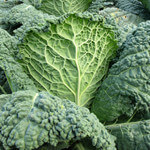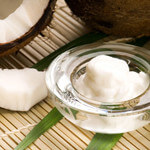 The health supplement industry, which includes vitamins, minerals, weight management products and whole food supplements, is one of the fastest growing industries in the world. Indeed, according to the Council for Responsible Nutrition, the industry is worth $32 billion in the United States alone, and more than 150 million Americans take dietary supplements annually.
The health supplement industry, which includes vitamins, minerals, weight management products and whole food supplements, is one of the fastest growing industries in the world. Indeed, according to the Council for Responsible Nutrition, the industry is worth $32 billion in the United States alone, and more than 150 million Americans take dietary supplements annually.
While health supplements should be viewed as a positive development in today’s world of ongoing soil erosion, it is true that not all supplements are created equal. Some of them are made using bio-unavailable nutrients that are difficult for our bodies to digest. Others do contain legitimate nutrients, but in doses so minuscule that they might as well be water pills. Then there are the supplements that contain the real nasties such as GMOs, artificial colors, irradiated materials, titanium dioxide… and a comparatively benign-sounding ingredient called “magnesium stearate.”
Magnesium Stearate: Not As Innocent As It Sounds
Despite its name, magnesium stearate is not a dietary source of the essential macromineral magnesium. Rather, it is a simple salt that is created when a magnesium ion bonds to stearic acid, a long-chain fatty acid. The resulting compound is an effective lubricant, making it ideal for mass supplement manufacturing since it prevents capsules and tablets from sticking to each other. Magnesium stearate is so effective in this regard, in fact, that it is found in an estimated 90 percent of all vitamin supplements.
Unfortunately, studies have shown that there are good reasons to avoid supplements that contain magnesium stearate. For example, one study published in the Journal of Pharmaceutical Sciences found that drugs that were lubricated with magnesium stearate exhibited a decrease in dissolution rate compared to those lubricated with sodium stearyl fumarate, a water-based compound. This result suggests that magnesium stearate could inhibit the nutrient absorption rate of dietary supplements. Another study published in Immunology found that stearic acid could suppress the activity of our natural killer cells, T cells, which could lead “to a loss of membrane potential and ultimately cell function and viability.”
Perhaps the biggest reason to avoid magnesium stearate, however, is that it is probably contaminated. The stearic acid from which the compound is made is usually sourced from hydrogenated cottonseed oil, which contains more pesticide residue than any other commercial oil (cotton crops are heavily sprayed and often genetically engineered as well). Moreover, the hydrogenation process is enormously damaging to the molecular structures of vegetable oils and causes them to become toxic to consume.
Identifying High-Quality Health Supplements
Ultimately, the only way we can be sure that a supplement is high-quality is to read its label and ensure that magnesium stearate and other harmful additives are not listed. Generally speaking, whole food supplements that are contained in vegetable capsules tend to be the best supplements to purchase. Also, don’t forget that certain superfoods, such as Moringa oleifera, wheatgrass, chlorella, and spirulina, tend to be far better sources of nutrients than manufactured multivitamin supplements, even if the latter are free from undesirable binders and fillers.






